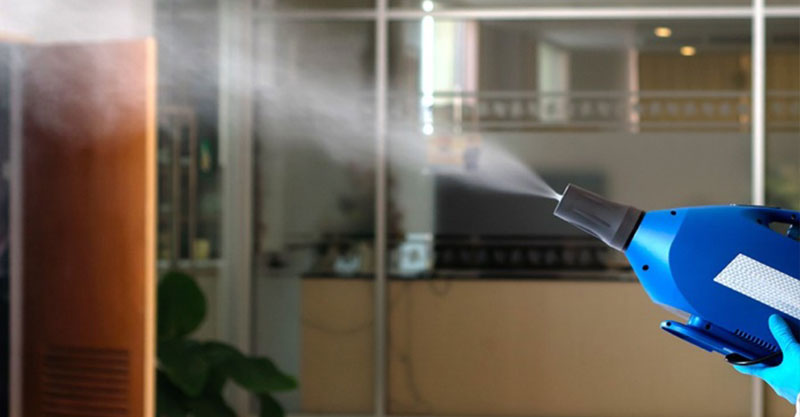Air Microbial Decontamination

In many countries, people spend many hours indoors; and indoor air commonly contains higher concentrations of airborne chemical contaminants and pathogenic microbes that outdoor air. Removing biological pathogens and toxic chemical compounds from air-air decontamination has been a recognized need for decades and has mostly been accomplished through ventilation.
Transmission of bacterial, fungal and viral pathogens is primary importance in public, occupational health and infection control. Although several standardized protocols have been proposed to target microbes on fomites through surface decontamination, use of microbicidal agents and cleaning processes, only limited guidance is available on microbial decontamination of indoor air to reduce the risk of pathogen transmission between individuals.
Airborne disease can spread when people with certain infections cough, sneeze, or talk, spewing nasal and throat secretions in to the air. Some viruses or bacteria take flight and hang in the air or land on other people or surfaces.
When you breathe in airborne pathogenic organisms, they take up residence inside you. You can also pick up germs when you touch a surface that harbors them and then touch your own eyes, nose or mouth. Because these diseases travel in the air, they are hard to control. Keep reading to learn more about the common types of airborne diseases and what you can do to protect yourself from catching them.
Some example of air borne diseases are common cold, influenza, chicken pox, mumps, measles, whooping cough, tuberculosis, diphtheria. Airborne disease usually results in one or more of the following symptoms like information (of nose, throat, sinuses, lungs) coughing, sneezing, congestion, runny nose, sore throat, swollen glands, headache, body aches, fever and fatigues. With our products and solutions, you can reduce air microbial decontamination.
Benefits of Air Microbial Decontamination:
- To make tank inside surface safe for use.
- To avoid cross contamination to water from tank.
- To reduce microbial load.
- Drinking Water Treatment
- Potable Water Treatment
- Process Water Treatment
- Swimming Pool Water Treatment
- Cooling Tower Water Treatment
- Boiler Water Treatment
- Lake Water Treatment
- Irrigation Water Treatment
- Waste Water Treatment
- Dialysis Water Treatment
- Well Water Treatment
- Surface Cleaning & Disinfection
- Tank Cleaning & Disinfection
- Pipeline Flushing
- CIP Application
- Filler Flushing Application
- Bottle Washing
- Fruits and Vegetables Washing
- Poultry and Animal Carcass Washing
- Food Microbial Decontamination
- Cooling Pad Cleaning and Disinfection
- Fogging Application
- Odor Removal Application
- Hygiene Application
- Greas Trap Application
- Biofilm Removal Application
- Hoof Hygiene Application
- HVAC Application
- Feed and Hay Decontamination
- Air Microbial Decontamination
- Laundry
- Vehicle or Car care Products
- House Keeping
